Did the EU Sell Its Soul to Turkey?
Adelina Marini, March 13, 2016
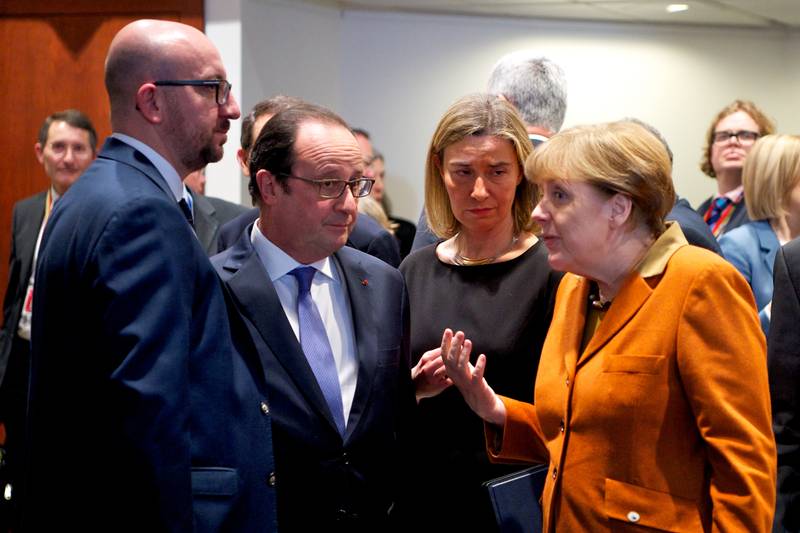 Nothing is agreed until everything is agreed. This is an old method of doing things that was administered to the Turkey negotiations last Monday (March 7). What the leaders of the 28 member states and Turkey agreed on is just a framework, which is yet to be filled with details in order to receive a final approval at the next summit – this time a regular one (like it matters at all) – on March 17-18 in Brussels. Although, as of yet de iure there is no deal, what was agreed on after a full day of negotiations caused strong reactions. The prevailing ones were that the EU had sold its soul to the dictator Erdogan, that it had turned its back to its values and its humanity. There are lone voices (excluding the ones of the leaders), saying it was a good deal. What exactly is the deal we will know in the next week. Its framework, however, has some very serious dimensions: the EU enlargement; the values of the Union; its unity.
Nothing is agreed until everything is agreed. This is an old method of doing things that was administered to the Turkey negotiations last Monday (March 7). What the leaders of the 28 member states and Turkey agreed on is just a framework, which is yet to be filled with details in order to receive a final approval at the next summit – this time a regular one (like it matters at all) – on March 17-18 in Brussels. Although, as of yet de iure there is no deal, what was agreed on after a full day of negotiations caused strong reactions. The prevailing ones were that the EU had sold its soul to the dictator Erdogan, that it had turned its back to its values and its humanity. There are lone voices (excluding the ones of the leaders), saying it was a good deal. What exactly is the deal we will know in the next week. Its framework, however, has some very serious dimensions: the EU enlargement; the values of the Union; its unity.
What did the leaders agree on at the EU-Turkey summit?
In the early hours of March 8, the Prime Ministers and Presidents of the member states and Turkey shook hands on a declaration text, showing the dividing lines within the EU as well as the ones between the EU and Turkey. Some of the lines are blurry, but still visible. Central European states, as well as countries along the Balkan refugee route, demanded that it was shut down. Richer member states, on the other hand, wanted an end to the transiting of refugees from poorer to richer states. The eastern part of the Union wanted the external EU borders shut down, security heightened along them and no more refugees admitted. The Western part agrees that the borders must be controlled using joint effort, so illegal immigration is ended, but is against not accepting any more refugees. Everyone wanted Turkey to be the solution of the Union’s refugee troubles, but Ankara demanded there is no way it is saving Europe with nothing in return.
After long hours of negotiations, which many called “Turkish haggling”, it was agreed that all illegal migrants, coming from Turkey to the Greek islands will be returned to Turkey at the expense of the European taxpayer. For every (Syrian) illegal migrant returned, the EU commits to take in a Syrian refugee from Turkey. This is the so called “one for one” formula. In return, the EU commits to speed up the implementation of the roadmap for visa liberalisation with Turkey, so it can be fact as early as by the end of the Dutch presidency (June 30). The commitment to prepare the opening of new negotiation chapters “as soon as possible”, as it was agreed in October, is re-stated. The closing of the Western Balkans for illegal migration is announced. It was also agreed to release a further 3 billion euro for the refugees that will stay in Turkey, in addition to the already approved 3 billion, the release of which faces serious difficulties in the EU, but in the declaration the leaders promise to speed up the process.
Quotas
The idea to fight refugee trafficking using the 1 for 1 formula was met with disapproval by the states, which are against the quota relocation, and not just them. Hungary and Slovakia put forward a special declaration, in which they declare their resistance to such a solution. In the declaration, the two countries give as an argument the fact that they have initiated legal actions against the EU’s decision for quota redistribution of 160 000 refugees. In Hungary, this issue will be resolved at a referendum. Other countries were outraged that the deal was struck behind everyone’s back. It was approved at a separate meeting between German Chancellor Angela Merkel, Turkish PM Ahmet Davutoğlu, and the PM of The Netherlands Mark Rutte, whose country currently holds the six-month rotating Presidency of the Council of the EU.
Despite being surprised by the turn of the meeting, French President François Hollande demonstrated a change in his previous position regarding Turkey. He pointed out that Turkey deserved European aid, for it houses over two and a half million refugees, suffers the aftermath of the war in Syria, and is the victim of terrorism. He promised that France would meet its commitment on the quota distribution of refugees and all other agreements. According to Turkish PM Ahmet Davutoğlu, Turkey is currently the largest host of Syrian refugees worldwide. In his words, the refugees have reached 2.7 million people. He reminded once more that there were Turkish cities where the Syrian refugees outnumber the local population.
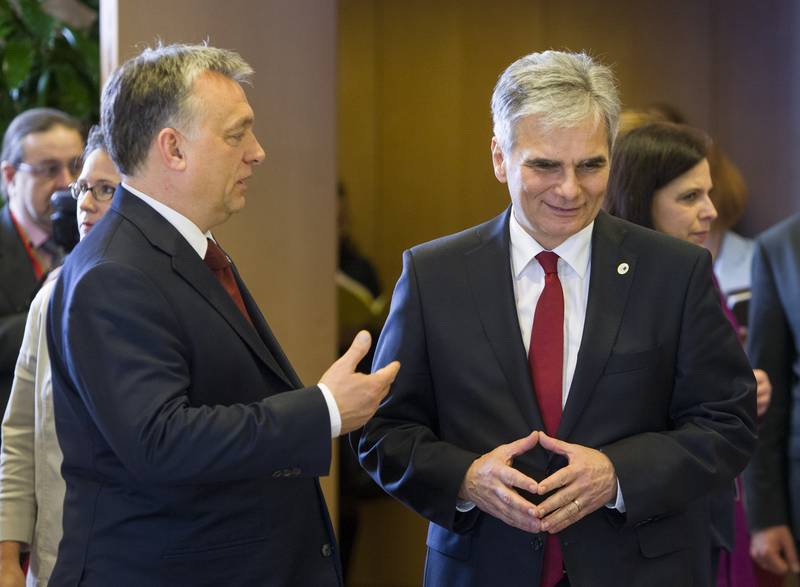 Slovenia, which followed Hungary’s lead and built a wire fence along its border with Croatia, at the very first government meeting after the Monday summit, approved a plan for receiving 567 refugees from Greece and Italy, as well as the relocation of 20 people from other states. This will probably be Turkey, although it is not explicitly mentioned. Up until now there is not a single refugee redistributed to Slovenia according to the quota system, agreed on in September. It is pointed out in the government resolution that the final number of refugees will probably be larger, as it depends on the current migration situation and on the final relocation agreement. Slovenia will start the transferring of refugees in April. There is still no clarity in neighbouring Croatia whether the quota agreement will be followed.
Slovenia, which followed Hungary’s lead and built a wire fence along its border with Croatia, at the very first government meeting after the Monday summit, approved a plan for receiving 567 refugees from Greece and Italy, as well as the relocation of 20 people from other states. This will probably be Turkey, although it is not explicitly mentioned. Up until now there is not a single refugee redistributed to Slovenia according to the quota system, agreed on in September. It is pointed out in the government resolution that the final number of refugees will probably be larger, as it depends on the current migration situation and on the final relocation agreement. Slovenia will start the transferring of refugees in April. There is still no clarity in neighbouring Croatia whether the quota agreement will be followed.
Prime Minister Tihomir Orešković called a special press conference this week, but questions on migration were limited. According to a government source, what was agreed on Monday is still not final, so it is premature to ask how many people will Croatia accept. Interior Affairs Minister Vlaho Orepić announced that there was a procedure started for the refugees currently housed in the Slavonski brod camp to be returned to Greece. In just four days the Bulgarian position turned 180 degrees. After the Monday night meeting, Bulgarian PM Boyko Borissov announced that there were many arguments on the subject of visa liberalisation “but if you recall, our position on the subject was that a liberalisation of the visa regime with Turkey is possible. This was accepted”, he said then, pointing out that there were many who were unhappy with the deal, but nothing better could be done currently.
In the late Friday afternoon, he sent a letter to European Council President Donald Tusk, announcing he is against the visa liberalisation and the deal as a whole if Bulgaria were not included in Turkey’s commitment for border security. “Bulgaria will not be prepared to accept a partial participation of Turkey (just for the Greek islands), which will probably lead to the opening of new migrant routes. We demand that a clear formula of ‘Turkish land borders with EU member states – Bulgaria and Greece, as well as all sea borders between Turkey and the EU’ be included in the document, which will be agreed on with the Turkish side”.
Secondly, the letter, which euinside has access to, says that visa liberalisation cannot be tied to dates, but to the implementation of the agreement for readmission. “The removal of visa requirements for Turkish nationals must begin only after the bilateral protocols on the implementation of the readmission agreement go in force and there is notable progress shown in their implementation. This is an essential requirement if we wish to achieve specific results and limit the migrant flows from Turkey”, says the Boyko Borissov letter. It is so far unclear what caused the turn in the Bulgarian position, nor does it say when will Bulgaria start to fulfil its obligations on the quota distribution.
The enlargement
Turkey is the only candidate country in the enlargement process that the EU has not liberalised its visa regime with. At the EU-Turkey summit of November 29 of last year a speeding-up of liberalisation was agreed on, so that the process can be finalised by October. The Monday agreement makes one more accelerating step – June 2016. The conditions on the roadmap, agreed on back in 2013 are not changed and Turkey promises it will fulfil them by then. PM Ahmet Davutoğlu made it quite clear that he sees the deal as a package. “It's important for us to see this as a package of Turkish EU-accession process. This is a humanitarian process helping refugees but at the same time it is a strategic issue for us as Turkey that Turkey will be integrated in the EU, and Turkish-EU relation will create a new momentum because this Syrian issue showed us very clearly that there is a need of a more sophisticated, integrated, strategic relationship between Turkey and EU”, he said.
Several hours prior, the boss of the EP, Martin Schulz (Socialists and Democrats, Germany), warned in front of journalists that exactly this should not be done. “It is quite clear that there is an attempt to link the questions related to the refugee and migration crisis with the accession process but one thing for us, as European parliamentarians, is clear - we have to separate the accession negotiations between Turkey and the EU and all the questions related to opening of new chapters from the short-term management of the refugee crisis”, he said. To Angela Merkel, close cooperation with Turkey is of the European interest. In her opinion, the war in Syria 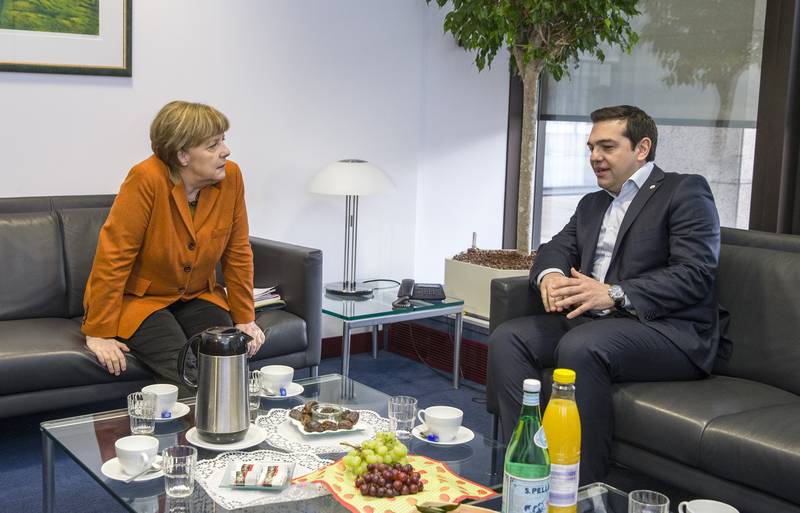 and the geopolitical positioning of Turkey regarding Europe is a very special case and it is exactly in this context that the enlargement process must be regarded.
and the geopolitical positioning of Turkey regarding Europe is a very special case and it is exactly in this context that the enlargement process must be regarded.
This does not mean, however, that anything is changed regarding requirements, she said. The big problem will come from Cyprus, which holds the key to unblocking several negotiation chapters, admitted Ms Merkel. At this point, however, Nicosia is not showing the required understanding, and, furthermore, the country is due to exit its bailout programme at the end of the month, thus depriving its partners of possible leverage. François Hollande was more careful regarding the Turkish negotiation process and urged the EU to be vigilant regarding the opening of new negotiation chapters, but even that is a sign for a serious change in the previous French position against the opening of new chapters. The European Parliament sent sharp criticism against the leaders during the debate this week. Turkish media environment received the strongest criticism, especially at the background of the deal being struck mere days after the authorities in Turkey overtook one of the opposition daily newspapers Today’s Zaman. The text of the leaders’ statement only marks that the subject of media in Turkey was discussed.
During the press conferences, obviously expecting uncomfortable questions, the leaders spoke much more on the subject. European Council President Donald Tusk stated that “we all know how important freedom of speech and expression are, these are fundamental human rights. Without them, there cannot be the healthy development of any culture, of any society. I am saying all this because we cannot stay indifferent to the concerns raised in this context about what is now happening in Turkey”, added the former Polish PM, whose country currently is under special monitoring by the EC because of suspicions for authoritarian approach to media. European Commission President Jean-Claude Juncker (Luxembourg, EPP) made an awkward statement, which could be taken as a joke, as well as a desperate attempt at reminding Turkey that the deal is a deal, but principles are fundamental.
When it was his turn at the press conference in the early hours of March 8, he began with the words: “The fact that this is the international women's day is explaining why three man are addressing this audience. And far as I can see this will not change in the next four years. Unless Turkey would appoint a woman as PM”. Juncker was politely countered by Ahmet Davutoğlu, who reminded that Turkey had already had a woman PM. He was referring to Tansu Çiller, who was the head of Turkish government between 1993 and 1996. She is the first and so far only woman prime minister of Turkey, but the situation is similar in many countries in Europe. Davutoğlu stated that he represents a country, which protects women from Syria and all victims – girls, children and women. “We'll do everything to protect the women dignity everywhere in the world”, he concluded.
And the former long-standing prime minister of Luxembourg continued half-jokingly with the words: “In fact, I didn't want to give you the floor”. The reaction of the EC president is not by accident at all and March 8 came to him as a blessing. Every EC progress report, including the latest one, insists that Turkey effectively guarantees the rights of women, children, homosexuals, and all the rest of the LGBTI group. It is noted that employment among women is very low – 31.6% in 2014, compared to 75% of men. Often women, listed as employed are actually working for no wages in the family agricultural business. All other leaders also spoke of how important press freedom is to the EU, but examples in Hungary, Poland, and other former Socialist states show that there are media problems in the Union itself. How the Union deals with them is of a paramount importance to the enlargement process, where larger and larger focus is placed over the last few years on the independence of media.
Although everyone claims that media freedom is part of the European system of values, it is taken differently in the different parts of the EU and outside it. This was especially noticeable in the Turkish PM’s statement, who said that the freedom of speech is a key value of Turkey too, not just of the EU. He legitimised himself on the subject by reminding he was a former columnist and stated that media in Turkey were free and very dynamic. Some of them are very critical of the government, he claims. The Zaman case is a judicial one, said Mr Davutoğlu, as was the case with the arrested journalists from another Turkish opposition newspaper, who were recently released. Not only is media freedom understood differently, but this difference is being encouraged. According to Angela Merkel, media freedom really is very important, but “Turkey does a lot to give shelter and support for the refugees. If we want to protect our external border and here the sea borders are of great importance, cooperation with Turkey is necessary”.
Anyway, like with Serbia, it is possible that the opinion should prevail that it is more important to open those negotiation chapters with Turkey which cover these exact problems, in order to expect any progress on them, instead of continuing with the weightlessness, in which the Turkish accession process was so far. Moreover, Turkey has clearly shown for the second time now that it has no doubts about its European integration, unlike Serbia, which could block the process at any given moment because of Russia or Kosovo. The problem is that every new agreement with Turkey only shows how late the conversation is on whether Turkey can and should be one day a member of the EU. This question was also posed to Angela Merkel, who replied in the familiar manner: “We are in negotiation process that is open as to the result. I've always said pacta sunt servanda (treaties must be followed). My predecessor started this accession process”.
Regarding the LGBTI community, the EU is not innocent either. Hungary has blocked this week the agreement for gender equality and equality of the LGBTI community during its discussion in the Employment, Social Policy, Health and Consumer Affairs Council. More and more member states are having referendums against gay marriages. This is a tendency, which could easily be used if the EC pushes too hard on the liberalisation of Turkish society during the negotiations.
Is the Western Balkans route closed?
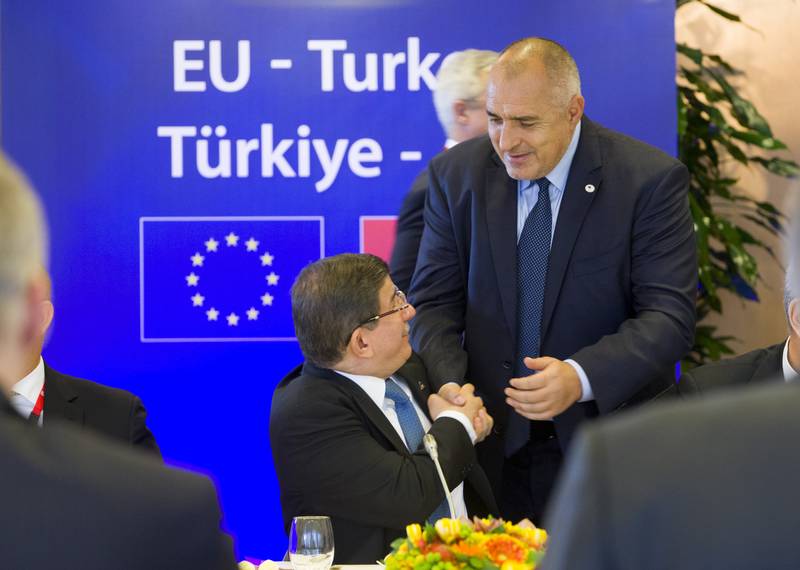
This was one of the most controversial issues during the Monday summit. All Eastern countries in the EU demanded that the final document included the words that the route is closed, but Angela Merkel and Jean-Claude Juncker were categorically opposed. The German chancellor said that she was deeply opposed to such wording. “As I have said today, nobody has closed anything but there is a standstill with very negative repercussions on Greece, which is why we dealt with how we can possibly turn the situation into a sustainable one, which it is not at present”, she explained. Although all Eastern members pronounced the route closed, none of them admitted for a long time that the opening of other routes was possible. This is now allowed for in the text of the document from Monday. “Take any necessary measures immediately in respect of any new routes opening up, and step up the fight against smugglers”, is written in the declaration.
Some states are already taking precautions. Hungary declared a state of emergency because of the potential aftermath of tension explosions, caused by the amassment of refugees in Greece. “We do not know what reaction this could trigger among refugees and illegal immigrants who are already present in these countries”, said Hungarian Minister of Interior Sándor Pintér regarding the measures, implemented by Slovenia, Croatia, and Serbia. It is about the three countries’ decision to only allow people with valid documents through the border. A little after Hungary, Serbia too declared a state of emergency. The main reason are also the refugees, as well as the floods in the country. Croatian Prime Minister Tihomir Orešković refused to speculate whether there was a possibility of a new route opening up along the Adriatic coast, which would seriously affect the country’s tourism.
The European soul has long been sold
The deal with Turkey poses many moral and legal questions. It could have heavy repercussions on enlargement and the principles it stands on. The larger issue at this stage, however, is that it will deepen the division within the Union. But we can actually not judge Turkey for trading its interests well, taking advantage of the EU’s weaknesses, when the Union does the same with its own members. To get this far, the Union has first sold its soul to Orbán. It is unclear whether the deal will lead to stopping the refugee flow into the EU. It is clear, however, that Orbánism prevails in the EU and demolishes its unity with every next day under the guise of direct democracy, sovereignty, and democratic legitimacy. This undermines all of the most important requirements for EU membership.
Translated by Stanimir Stoev
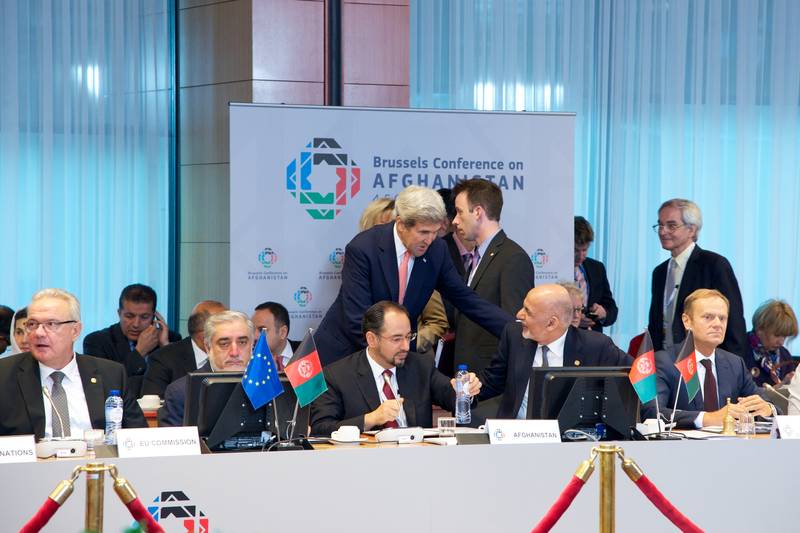 | © Council of the EU
| © Council of the EU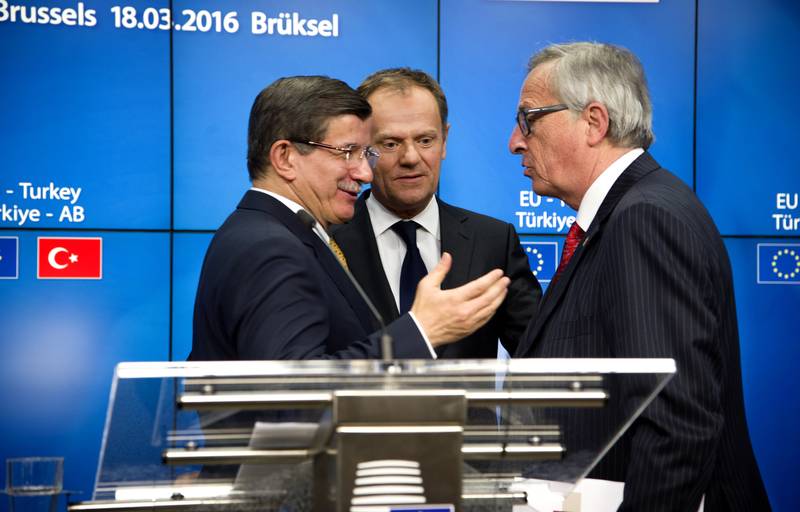 Davutoglu, Tusk, Juncker | © Council of the EU
Davutoglu, Tusk, Juncker | © Council of the EU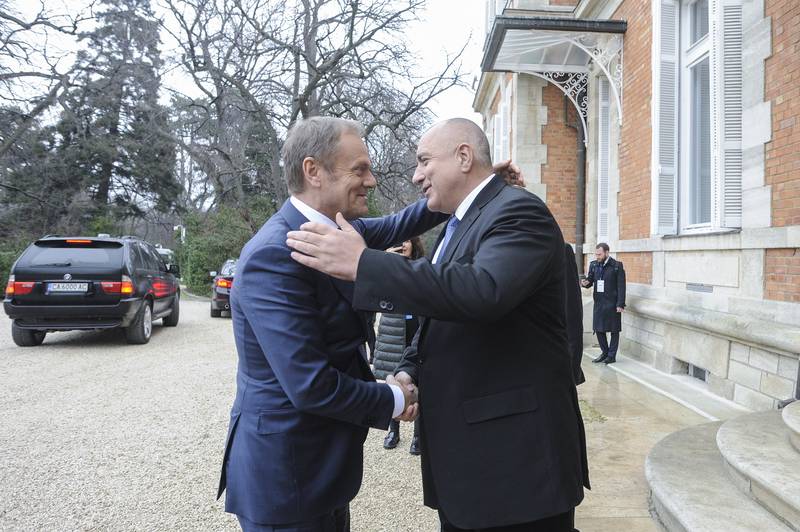 Donald Tusk, Boyko Borissov | © Council of the EU
Donald Tusk, Boyko Borissov | © Council of the EU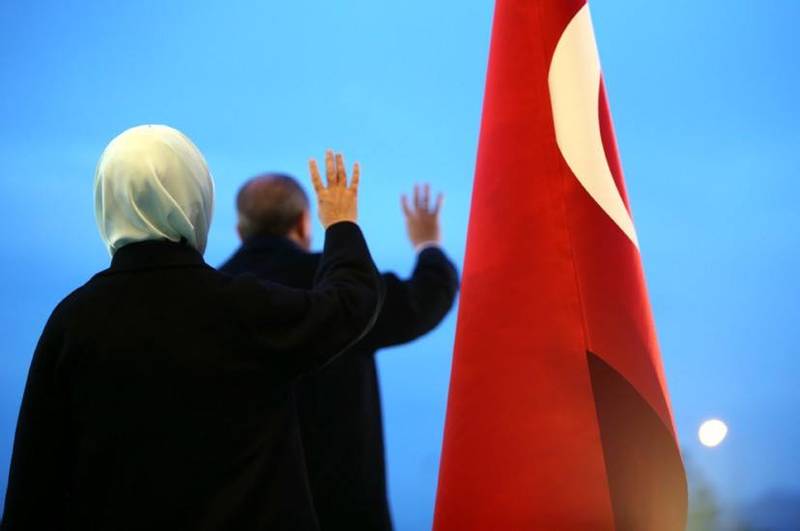 | © Turkey Presidency
| © Turkey Presidency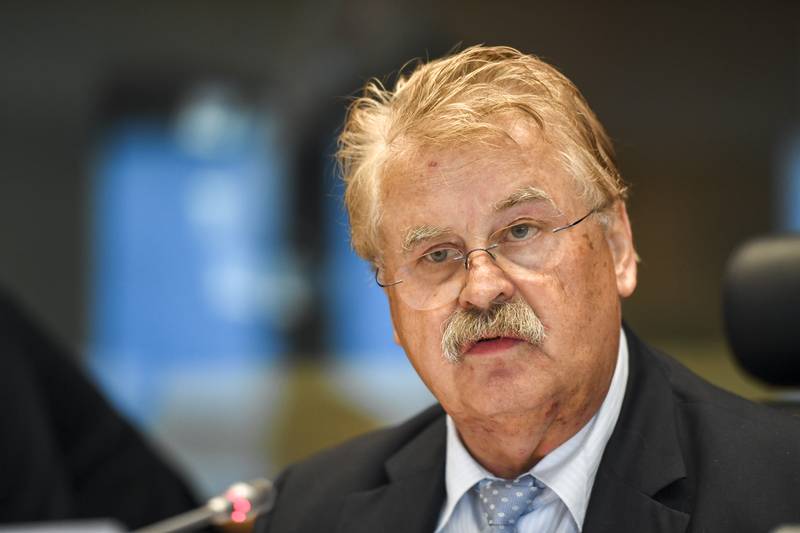 Elmar Brok | © European Parliament
Elmar Brok | © European Parliament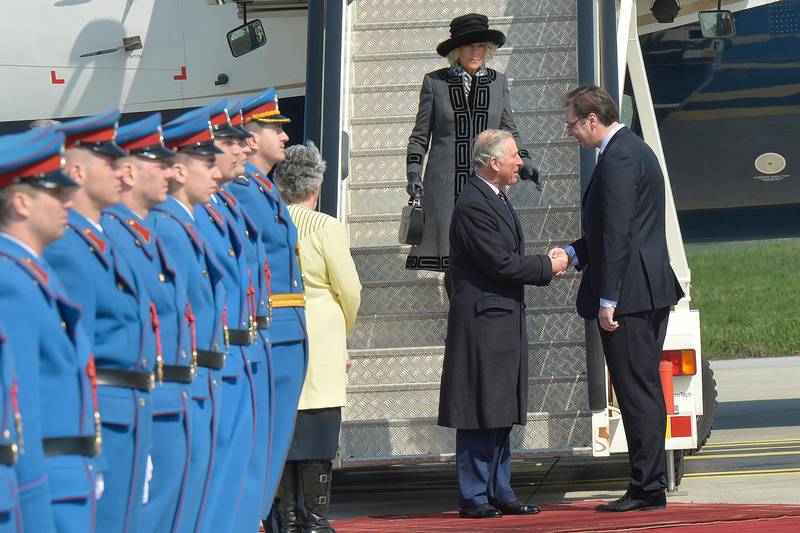 | © Vlada RS
| © Vlada RS